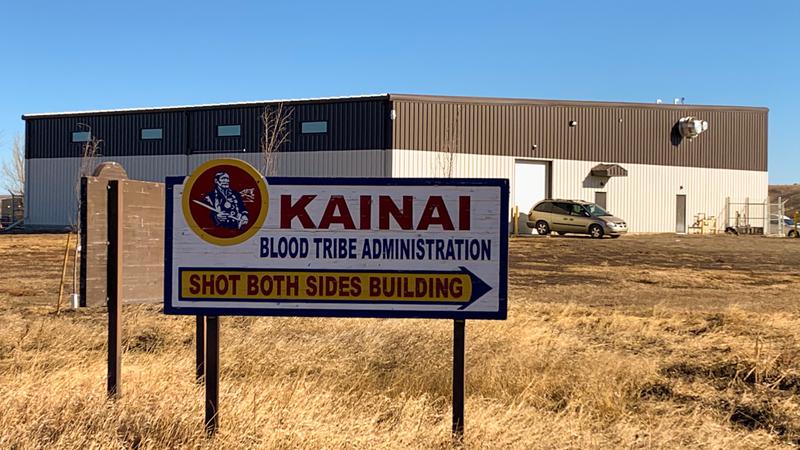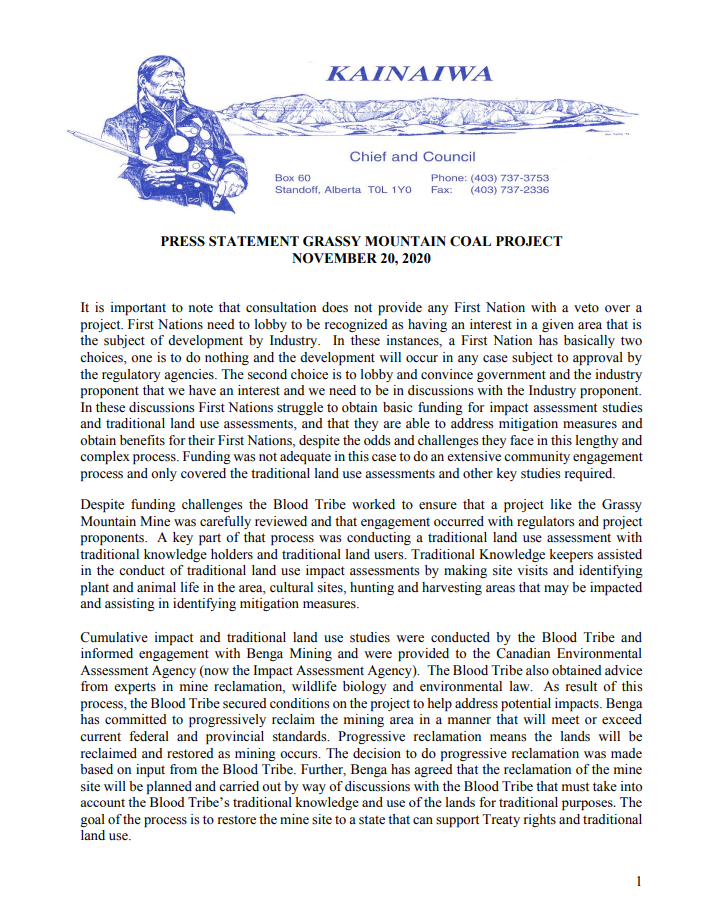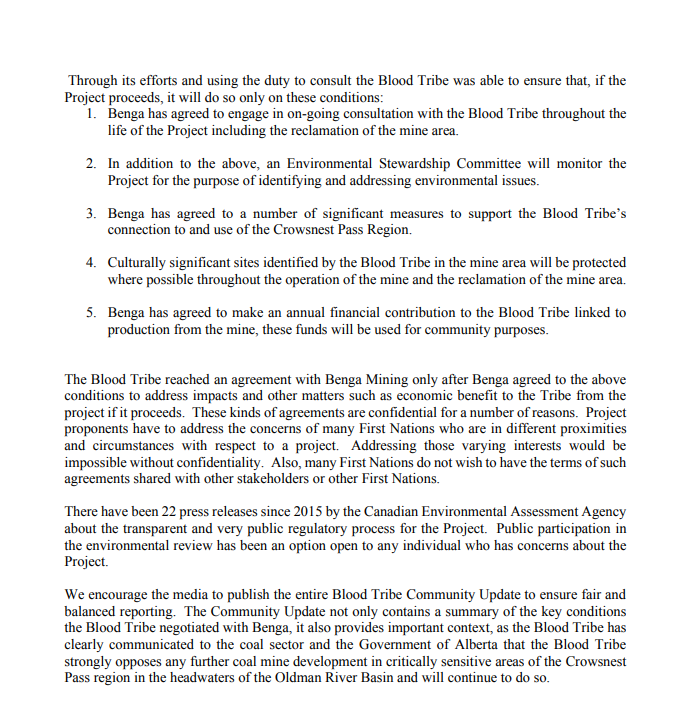
Blood Tribe residents not consulted on proposed coal mine despite thumbs up from officials
STANDOFF, AB – A proposed metallurgical coal mine in the Crowsnest Pass has been greenlit by several Treaty 7 First Nations despite little-to-no input from residents.
Riversdale Resources’ Benga Mining looks to build the Grassy Mountain Coal Mine seven kilometers north of Blairmore. The 1,500-hectare project would produce an estimated 93-million tonnes of coal over its 25-year lifespan.
As part of the mining approval process, both the federal and provincial governments require applicants to consult with Indigenous populations in the area of the proposed site.
Blood Tribe resident Latasha Calf Robe, however, has been raising awareness of the fact that this has not happened, at least not on a widespread citizen level.




